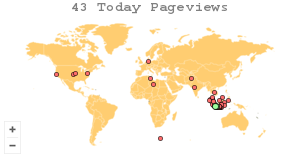Al-Qur’an dan Diskursus Tentang Hate Speech
DOI:
https://doi.org/10.47498/bashair.v4i1.3176Keywords:
Hate Speech, Al-Qur’an, Qaulan Kariman, Qaulan Layyinan, Qaulan SadidanAbstract
Hate speech is behavior that is badmouthing, harassing, intimidating, inciting hatred or provocation against individuals and groups based on race, ethnicity, religion, gender or social orientation which has many negative impacts. This article examines the discourse regarding hate speech based on the perspective of the Qur'an using qualitative data analysis methods and a library research approach. The results of this research show that the Al-Qur'an never legitimizes hate speech behavior. The Qur'an as huda lil nas summarizes teachings that call for good communication ethics in society and condemns behavior that falls within the scope of hate speech. Strategies for dealing with hate speech behavior that can be emulated in the Al-Qur'an are Qaulan Kariman, Qaulan Layyinan, and Qaulan Sadidan.
References
Abdillah, R., Ibrahim, A. A., Sirait, N. O. E., Oktavia, N. K., Widyadari, R., Amanda, S. F., & Jansa, S. N. (2023). Studi Psikologi Siber Tentang Dampak Hate Speech Bagi Pengguna Media Sosial. Sibatik Journal | Volume, 2(11), 3459–3472. https://doi.org/https://doi.org/10.54443/sibatik.v2i11.1478
Abghiya, A. R., Budiyanti, N., Az Zahra, F., Azzahra, N., & Ikhsan Ag, M. (2023). Strategi Mengatasi Hate Speech Di Media Sosial Dalam Perspektif Islam. Alamtara: Jurnal Komunikasi Dan Penyiaran Islam, 7(1), 44–61. https://doi.org/10.58518/alamtara.v7i1.1519
Aisah, S., & Khusni Albar, M. (2021). Telaah Nilai-Nilai Pendidikan Sosial Dari Q.S Al Hujurat: 11-13 Dalam Kajian Tafsir. Arfannur : Journal of Islamic Education, 2(1), 35–46. https://doi.org/10.24260/arfannur.v2i1.166
Al-Ashfahani, A.-R. (2017a). Al-Mufradat fi Gharibil Qur’an (Terjm. Kamus Al-Qur’an) (M. P. . nurhadi, ruslan, Lc (ed.); 2nd ed., Vol. 2). Pustaka khazanah fawa’id.
Al-Ashfahani, A.-R. (2017b). Al-Mufradat fi Ghariib Al-Qur’an (M. P. . Nurhadi, Ruslan, Lc (ed.)). Dar Ibnul Jauzi.
Al-Qurtubi, A. ’Abdillah al-A. (1993). Jami’ li Ahkam Al-Qur’an. Dar al-Kutub al-Ilmiyyah.
Amalia Isnaini, Amir Mahmud, & Saifullah. (2023). WARNING DAN KONSEKWENSI HATE SPEECH DALAM AL-QUR’AN (Tafsir Tematik Ayat-Ayat “Hate Speech”). Multicultural Islamic Education, 7(1), 53–66. https://doi.org/10.35891/ims.v7i1.4889
Amin, A. P. (2017). Dilema Ayat-Ayat Hate Speech. Bonus Demografi Sebagai Peluang Dan Tantangan Menghadapi Keberagaman Di Indonesia, 116.
As-Suyuthi, I. (n.d.). Asbabun An-Nuzul (1st ed.). Dar Al-Fajr lit At-Turats.
Az-zuhaili, W. (n.d.). terjemahan kitab tafsir al-munir jilid 13. gema insani.
Cyilmia, F. (2019). Hate Speech : Pembacaan Terhadap QS. Al-Hujurah Ayat 11 -12 Perspektif Hermeneutika Paul Ricoeur. In UIN Syarif Hidayatullah.
Davison, R. C. R., & Smith, P. M. (2018). Quantitative data analyses. In Research Methods in Physical Activity and Health (sixth edit). London and New York: Routledge,. https://doi.org/10.4324/9781315158501-17
Harahap, M.A, D. N. (2020). Penelitian Kualitatif (H. Sazali (ed.)). Wal Ashri Publishing.
Husna Asri, K., Rahman, L. N., & Ummah, R. (2022). Dampak Bullying, Kekerasan Dan Hate Speech Pada Anak: Studi Kasus Di Smk Swasta Caringin Bogor, Indonesia. Jurnal Anifa: Studi Gender Dan Anak, 3(2), 108–119. https://doi.org/10.32505/anifa.v3i2.4910
Ishaq Al-Sheikh, D. A. B. M. B. A. Bin. (1994). Lubaatut Tafsiir Min Ibni Katsir (Cet. 1). Mu-assasah Daar al-Hilaal.
Katsir, I. (2005). Terjemahan kitab tafsir Ibnu Katsir jilid 7 bagian 4 ( m abdul Ghoffar (ed.)). pustaka imam asy-syafi’i.
Larasaty, D., & Subakti, G. E. (2022). Analisis Freedom of Speech di Media Sosial Twitter dengan Kaitannya terhadap Adab Generasi Muda Islam dalam Berinteraksi di Media Sosial. Al-I’lam: Jurnal Komunikasi Dan Penyiaran Islam, 6(1), 27–36. https://doi.org/10.31764/jail.v6i1.11141
Lutfi, S. (2020). Materi Pendidikan Akhlak menurut Al-Qur’an: Analisis Surah Al-Hujarat Ayat 11-12. Al-Mudarris : Jurnal Ilmiah Pendidikan Islam, 3(2), 159–168.
Mardiyati, I. (2017). Fenomena Hate Speech di Sosial Media dalam Perspektif Psikologi Islam. At-Turats: Jurnal Pemikiran Pendidikan Islam, 11(1), 31–38. https://doi.org/10.24260/at-turats.v11i1.867
Mawarti, S. (2018). FENOMENA HATE SPEECH Dampak Ujaran Kebencian. Toleransi : Media Komunikasi Umat Beragama, 10(1), 83–95.
Prof. Dr. Hamka. (2018). Tafsir Al-Azhar Jilid 9. In Analytical Biochemistry (Vol. 11, Issue 1). PUSTAKA NASIONAL PTE LTD. http://link.springer.com/10.1007/978-3-319-59379-1%0Ahttp://dx.doi.org/10.1016/B978-0-12-420070-8.00002-7%0Ahttp://dx.doi.org/10.1016/j.ab.2015.03.024%0Ahttps://doi.org/10.1080/07352689.2018.1441103%0Ahttp://www.chile.bmw-motorrad.cl/sync/showroom/lam/es/
Rahmadhany, A., Aldila Safitri, A., & Irwansyah, I. (2021). Fenomena Penyebaran Hoax dan Hate Speech pada Media Sosial. Jurnal Teknologi Dan Sistem Informasi Bisnis, 3(1), 30–43. https://doi.org/https://doi.org/10.47233/jteksis.v3i1.182
Ridlwan, M., & Khotijah, Y. S. (2021). Islam Dan Hate Speech (Studi Fenomenologi Atas Ujaran Kebencian Di Indonesia). AL HIKMAH : Jurnal Studi Keislaman, 11(1), 48–58.
Rohmaniyah, I. (2018). Hate Speech: The Interpretation of Islam and ‘the Other’ in Suara Islam On-Line. Ushuluddin International Conference (USICON). https://vicon.uin-suka.ac.id/index.php/USICON/article/view/361%0Ahttps://vicon.uin-suka.ac.id/index.php/USICON/article/download/361/300
Safitri, M. (2020). Problem Ujaran Kebencian di Media Sosial Dalam Perspektif Al-Qur’an. Jurnal Al-Fath, 14(2), 203–237.
Weber, A. (2009). Manual on hate speech (French Edi). Council of Europe Publishing.
Wirawanda, Y., & Wibowo, T. O. (2018). TWITTER: Expressing Hate Speech Behind Tweeting. Profetik: Jurnal Komunikasi, 11(1), 5–11. https://doi.org/10.14421/pjk.v11i1.1378
Downloads
Published
Issue
Section
License
Authors who publish articles in Basha'ir: Jurnal Studi Al-Qur'an & Tafsir agree to the following conditions:
- The author retains copyright and grants the Basha'ir Journal the right from the first publication with the work simultaneously licensed under a Creative Commons Attribution-ShareAlike 4.0 International (CC BY-SA 4.0) license that allows others to make changes, adjust and build on the work with recognition of the author's work and initial publication in the Journal.
- Authors are allowed to copy and redistribute published versions of works in journals (for example, posting them to institutional repositories or publishing them in a book), with recognition of their initial publication in Basha'ir: Jurnal Studi Al-Qur'an & Tafsir.
- Authors are allowed and encouraged to post their work online (for example, in institutional repositories or on their websites) before and during the submission process, as it can lead to productive exchanges, and increase citations of published works





